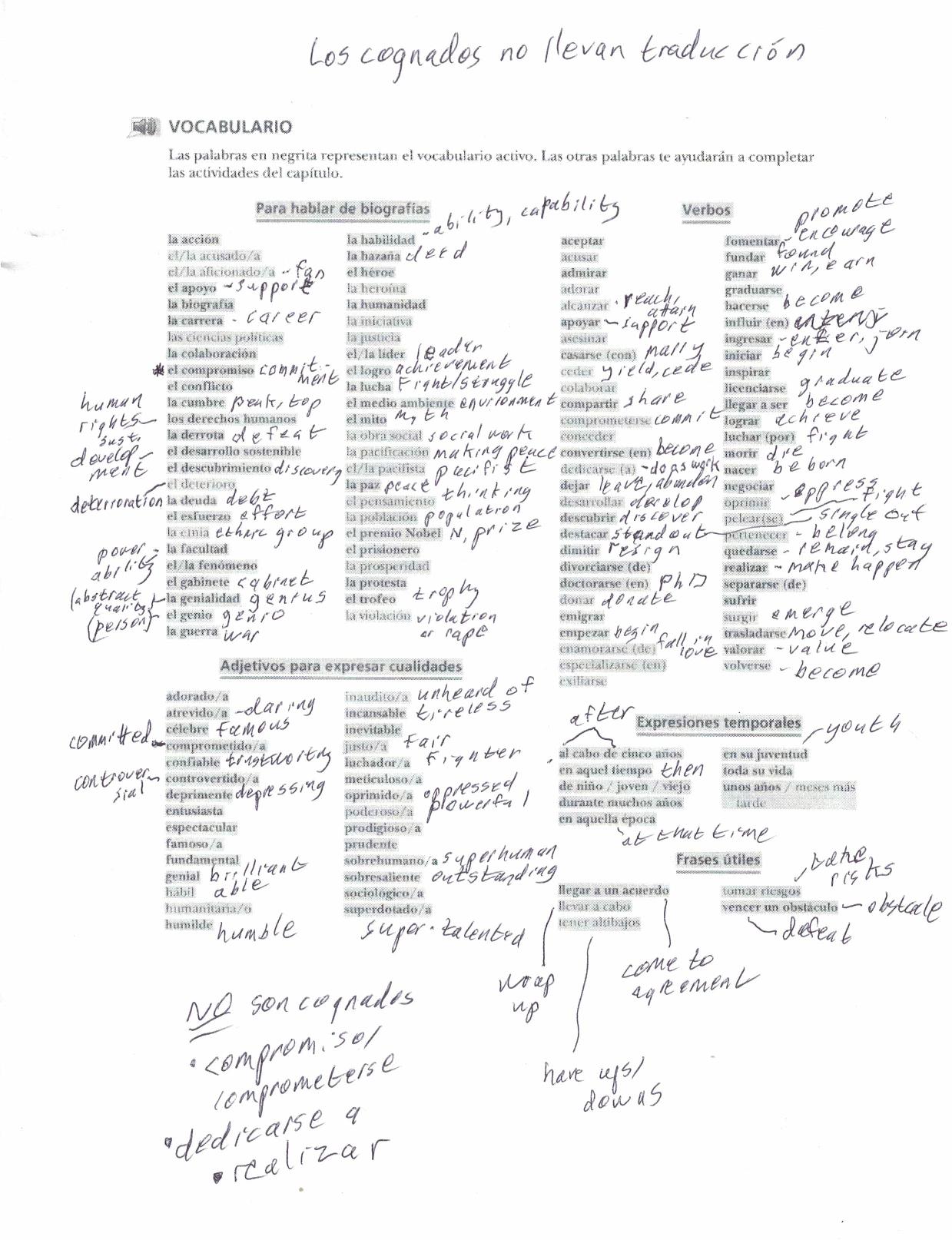Everybody knows that flossing is good for you. But what about glossing?
The Spanish textbook series we currently use at Fordham University is Pearson’s Gente. The beginning and intermediate books in the series provide glosses, or translations, for the vocabulary list at the end of each chapter. But the advanced textbook does not. There is a Spanish-English glossary at the end of the book that students can use to look up words.
The first time I taught this course, I was struck by how inefficient it was for each student to have to look up the words. Moreover, I found some mistakes, or at least weaknesses, in the glosses:
- missing words
- glosses that average college students wouldn’t necessarily understand (‘foment’, ‘infusion’)
- glosses that are correct but not necessarily satisfactory, such as ‘commitment, engagement’ for compromiso (leaving out that it’s often a pre-marital engagement) or ‘offer’ for oferta, where the usual meaning involves a special price.
- glosses that conflate differences, such as genialidad and genio both glossed as ‘genius’
- no heads-up for false cognates such as compromiso, which doesn’t mean ‘compromise’
So this semester, at the beginning of each chapter I gave the students a screen shot of the vocabulary page on which I had written on my own glosses. I photocopied these onto yellow paper — a teaching trick I picked up somewhere along the way. Here’s an example: my original, hence not yellow. Note that I don’t generally gloss cognates. This drives home their ubiquity, and also makes false cognates stand out.
(post continues after graphic)

When I told a colleague about my approach, she was mildly horrified. She thought that it was important for students to look up the glosses themselves, and that this was their first step in learning vocabulary. I believe that while it’s beneficial to use a dictionary while reading, and that this is a special skill that we need to teach our students, looking up 100 words, in alphabetical order, in a simple glossary is fundamentally different. It’s mechanical, rather than intellectual, essentially a secretarial task of collating two lists.
What do you think?
In this follow-up post, I describe my students’ unanimously favorable assessment of the glosses.